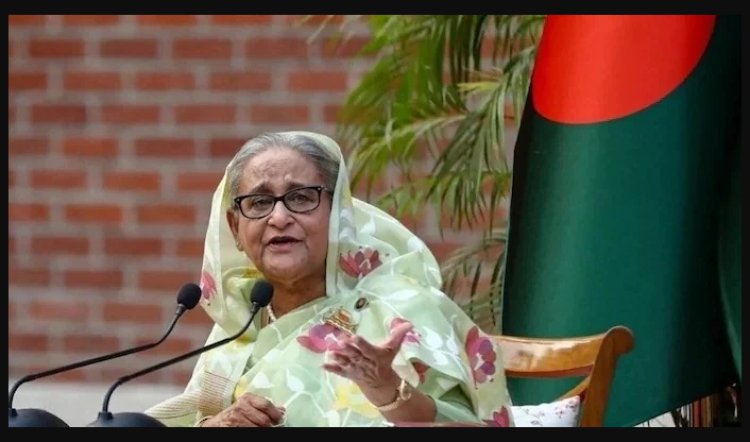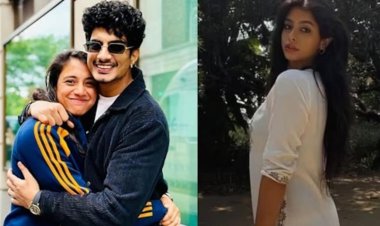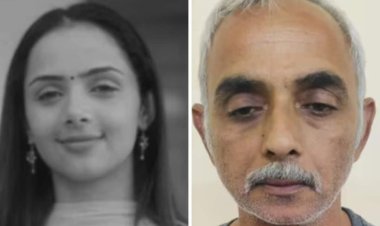Sheikh Hasina will return home, what steps has India taken; what do the rules say?.
Bangladesh's ousted Prime Minister Sheikh Hasina has been sentenced for crimes against humanity, following which the Bangladesh government has sought her extradition from India. India has responded by stating that it will engage with all parties to maintain peace and democracy in Bangladesh, but has not directly commented on the extradition. Under the terms of the extradition treaty, India reserves the right to refuse extradition, especially if the case appears to be politically motivated.

Highlights
- Sheikh Hasina sentenced to death
- Bangladesh requests extradition
- What action will India take?
Bangladesh's ousted Prime Minister Sheikh Hasina has been sentenced to death in absentia for crimes against humanity. The interim government has subsequently urged India to extradite her immediately.
Hasina has been living in India since fleeing Bangladesh following the student-led uprising on August 5 last year. Hasina and her former Home Minister, Asaduzzaman Khan Kamal, have already been declared fugitives by the court.
Bangladesh demands Hasina's extradition
"We urge the Government of India to immediately hand over the convicted individuals to Bangladeshi authorities," the Ministry of External Affairs statement said. It added that the existing bilateral extradition treaty between Bangladesh and India makes the transfer of both convicts a mandatory responsibility of New Delhi.
The Ministry also stated that harboring individuals convicted of crimes against humanity would be considered an act of hostility and a travesty of justice.
This Was Not a Minor Fault": Expert Breaks Silence on Air India Flight 171 Crash
How did India respond?
India reacted to the Dhaka court's verdict against Hasina and assured Bangladesh that it would engage constructively with all stakeholders, keeping in mind peace, democracy, and stability in the neighboring country.
The Ministry of External Affairs (MEA) stated that India is committed to the best interests of the people of Bangladesh, but did not comment on Dhaka's call for Hasina's extradition. The Ministry said, "India has taken note of the verdict delivered by the International Crimes Tribunal for Bangladesh in respect of former Prime Minister Sheikh Hasina."
The Ministry further said, "As a close neighbour, India is committed to the best interests of the people of Bangladesh, including peace, democracy, inclusiveness, and stability in that country. We will always engage constructively with all stakeholders towards this end."
Regarding Asad's encounter with his son, Atiq Ahmed declares, "I am responsible."
Will India extradite Hasina?
Although extradition requests are generally accepted in good faith, it is highly unlikely that India will extradite Hasina. Both Indian law and bilateral treaties provide India with significant discretion, especially in cases where the request may be considered politically motivated or unjust.
What does the rule say?
- In 2013, India and Bangladesh signed an extradition treaty as a strategic measure to combat insurgency and terrorism along their shared borders.
- Three years later, in 2016, the treaty was amended to facilitate the exchange of fugitives wanted by both countries. However, a key requirement for extradition under the treaty is the principle of dual criminality, meaning that the crime must be punishable in both countries.
- While Hasina's conviction meets the minimum procedural condition for extradition, this clause still gives Delhi some scope to deny extradition on the grounds that the charges against her do not fall within the scope of India's domestic law.
- Furthermore, Article 8 of the treaty states that an extradition request may be rejected if the accused can prove that the action would be unjust or oppressive.
- This can only be done if the accused can prove that the crime is minor, a significant amount of time has passed, the accusation lacks good faith, the offense is purely military in nature, or the individual has previously been convicted but not sentenced.
- Under this clause, New Delhi can deny Hasina's extradition on the grounds that the charges against her were not made in good faith and that she is likely to be subjected to political persecution.
- Article 6 of the treaty also provides that extradition can be denied if the crime is of a political nature. However, the treaty also clarifies that serious crimes such as murder, terrorism, kidnapping, or crimes under multilateral anti-crime treaties cannot be considered political.
- Since most of the charges against Hasina (murder, enforced disappearance, and torture) fall outside the scope of this exemption, it is unlikely that Delhi will use this clause to justify these charges as political violations.
- Another ground for refusal is mentioned in Article 7, which states that extradition may be refused if India can prosecute the accused.
- The Extradition Act, 1962, also gives the Indian government the power to refuse extradition, stay proceedings, or release the wanted person, depending on the circumstances.
- Section 29 of the Act clarifies that India may reject an extradition request if it appears frivolous or not made in good faith, if it is politically motivated, or if extradition is not in the interest of justice.
- The law also gives the Centre the power to stay proceedings, cancel a warrant, or acquit the wanted person "at any time."
To investigate the deaths of Ashraf and Atiq Ahmed, CM Yogi forms a three-person team.













